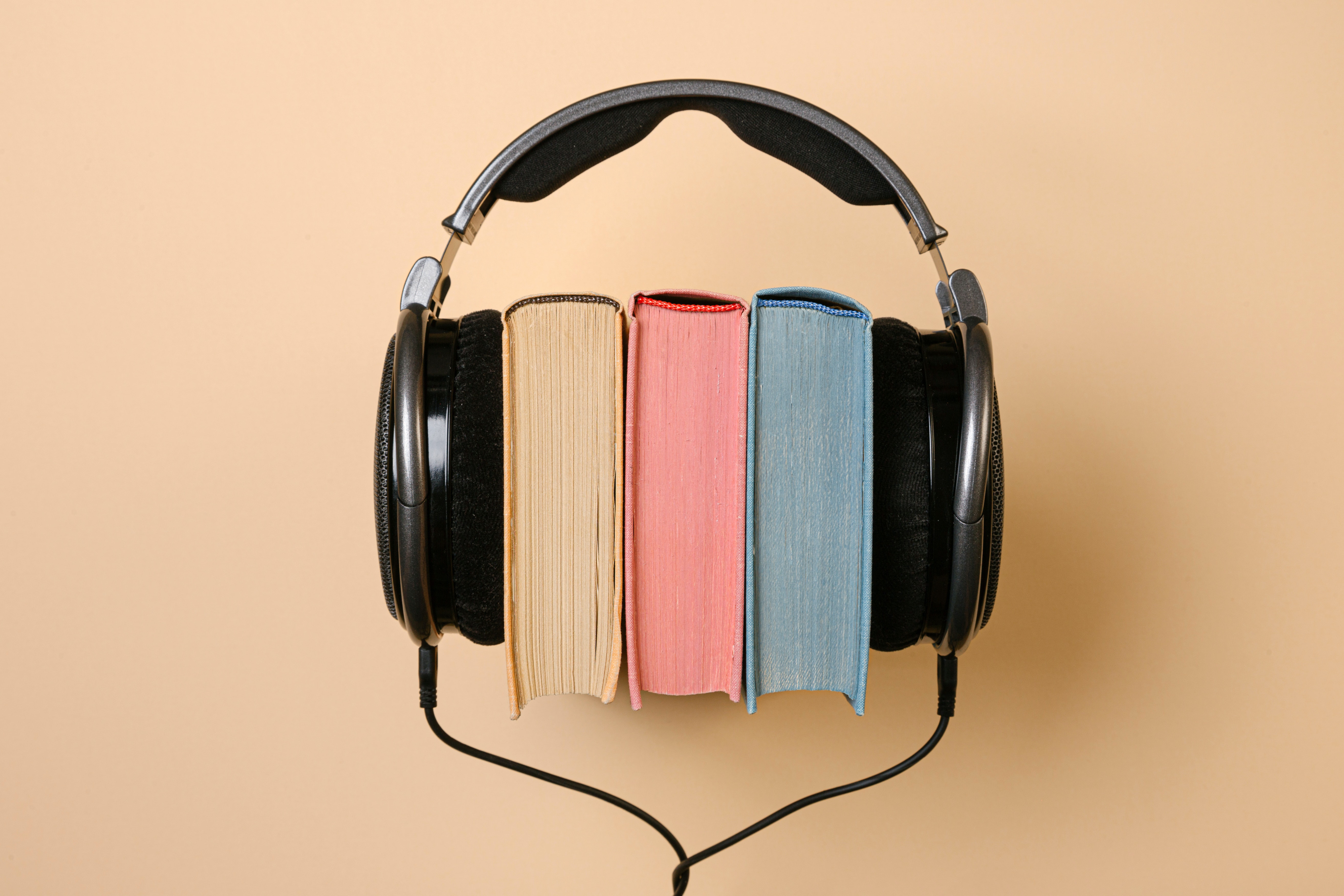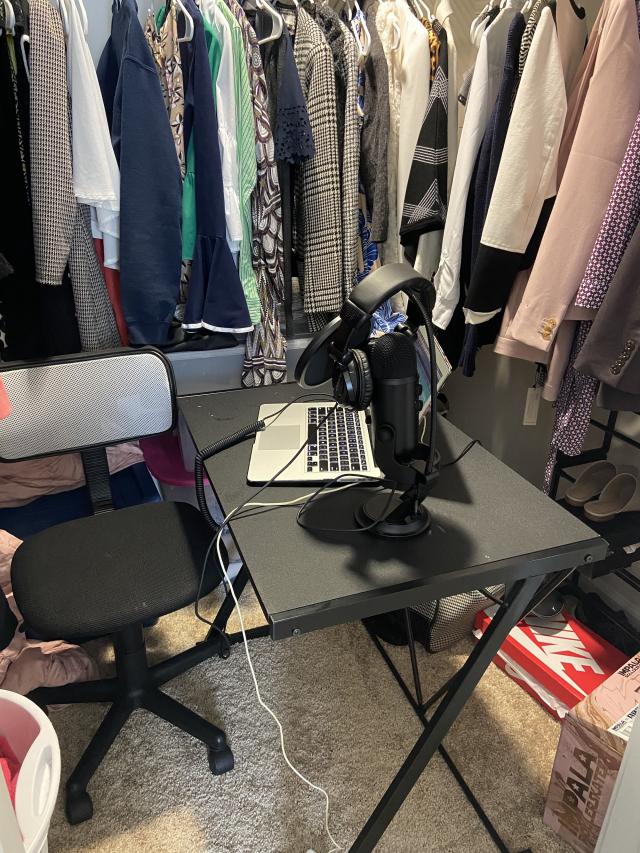Podcasting the Humanities
April 27, 2021

Graduate students reach a wider audience through podcasts related to the arts and humanities.
By Kate Spanos ’16 Ph.D. theatre and performance studies
These days, you can find Jordan Ealey creating podcasts in her walk-in closet, converted into a full-fledged recording studio. With all her clothes, it’s the best acoustic space in her house for recording.
The second-year doctoral student in theatre and performance studies is the co-host and co-producer of “Daughters of Lorraine,” a podcast that reviews Black theater productions in the Washington, D.C.-Baltimore region. Ealey and fellow TDPS doctoral candidate Leticia Ridley engage in national conversations about Black performance and interview Black theater artists about their work. The title references renowned Black playwright Lorraine Hansberry.
Ealey says it's an innovative way to share scholarly conversations in a format that’s accessible for general audiences.
“Our podcast is a conversational format that presents new ways to create and disseminate knowledge about performance scholarship,” she said.
She is not the only performing arts student at Maryland to explore the medium. M.F.A. dance candidate Cyrah Ward began her conversational podcast “The Black Box News” last year to question “box-like thinking,” encouraging listeners to think critically about issues of race and social justice. Through sermonic-like scripts and artist roundtable talks, Ward centers her Black cultural lens to address a range of topics, including gender politics, institutionalized racism and racial equality that ultimately works to celebrate the power of Black Womanhood and dismantle racism.
“My podcast is meant to create a safe space for the Black community to speak for ourselves about issues that we care about,” said Ward, who previously was a performer with Urban Bush Women, a Brooklyn-based dance company for African American women that is focused on issues of equity in dance.
This past winter, Ealey and Ward took part in a five-day virtual “Podcasting the Humanities” residency. Offered through the National Humanities Center, in partnership with San Diego State University’s Digital Humanities Lab, the residency was intended to teach technical podcasting skills, as well as approaches to collaboration, project management and accessibility.
Participants were graduate students from a range of disciplines. Each person completed one podcast episode by the end of the weeklong residency. Ealey and Ward were nominated by TDPS faculty to attend.
“It was a great opportunity to learn the technical side of podcasting, as well as the intellectual connections between digital media and the humanities,” said Ealey.
Central to the residency program was training participants to work at the intersection of traditional academic spaces and non-academic communities, combining research and community-based narratives into more accessible formats.
Ealey said she hopes her podcast continues to reach people outside of academia, spurring conversations about social justice that affect the theater community more broadly.
“Making information accessible is hard work,” Ealey explained. Ward added, “For both of us, podcasting is about talking to multiple audiences at once and empowering everyone to contribute to social change.”
To learn more about their podcasts, visit “Daughters of Lorraine” (Jordan Ealey and Leticia Ridley) at @dolorrainepod on Twitter and on Howlround, and Cyrah L. Ward at on Linktree.
Inset photo by Stas Knop from Pexels.


